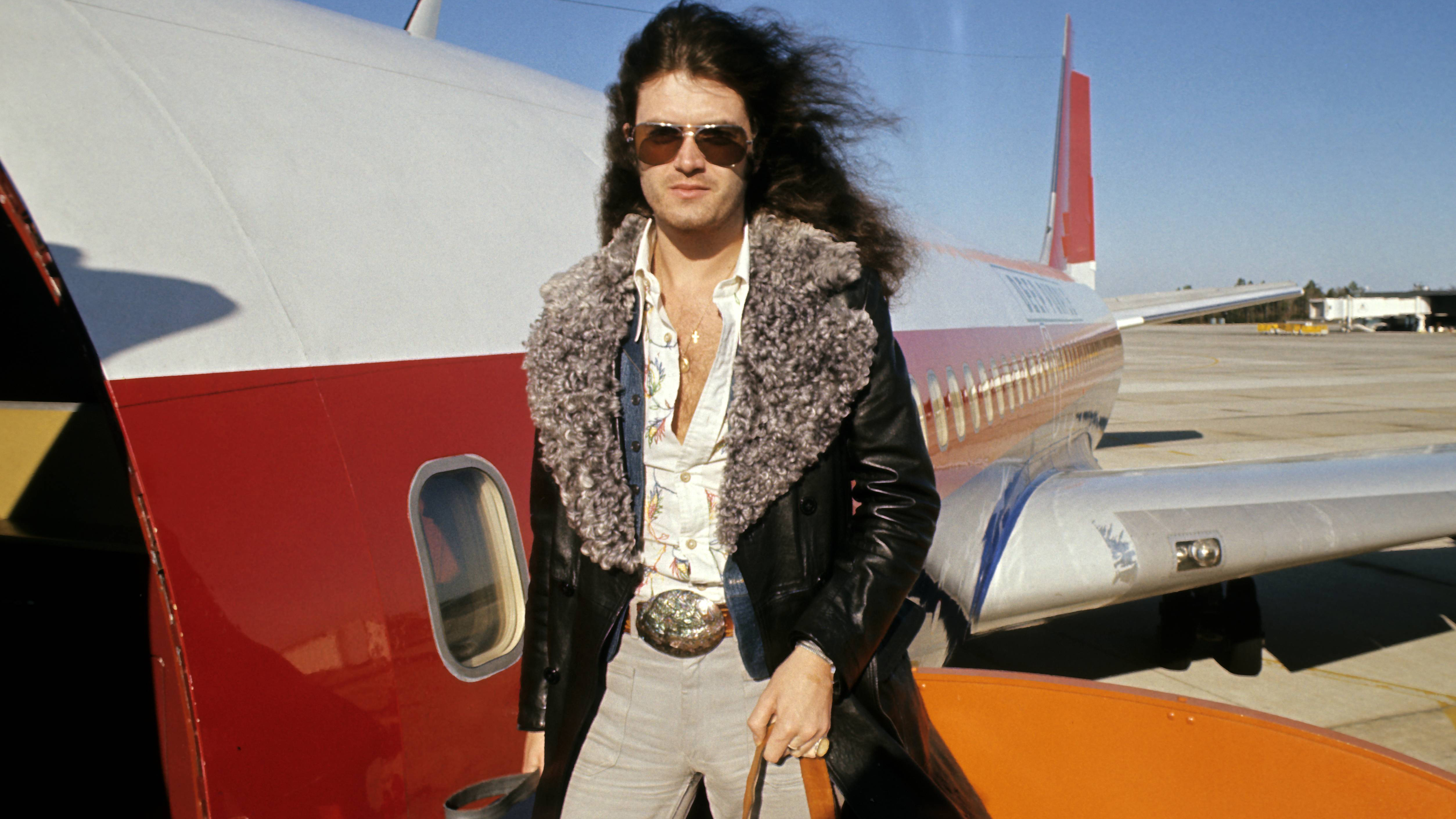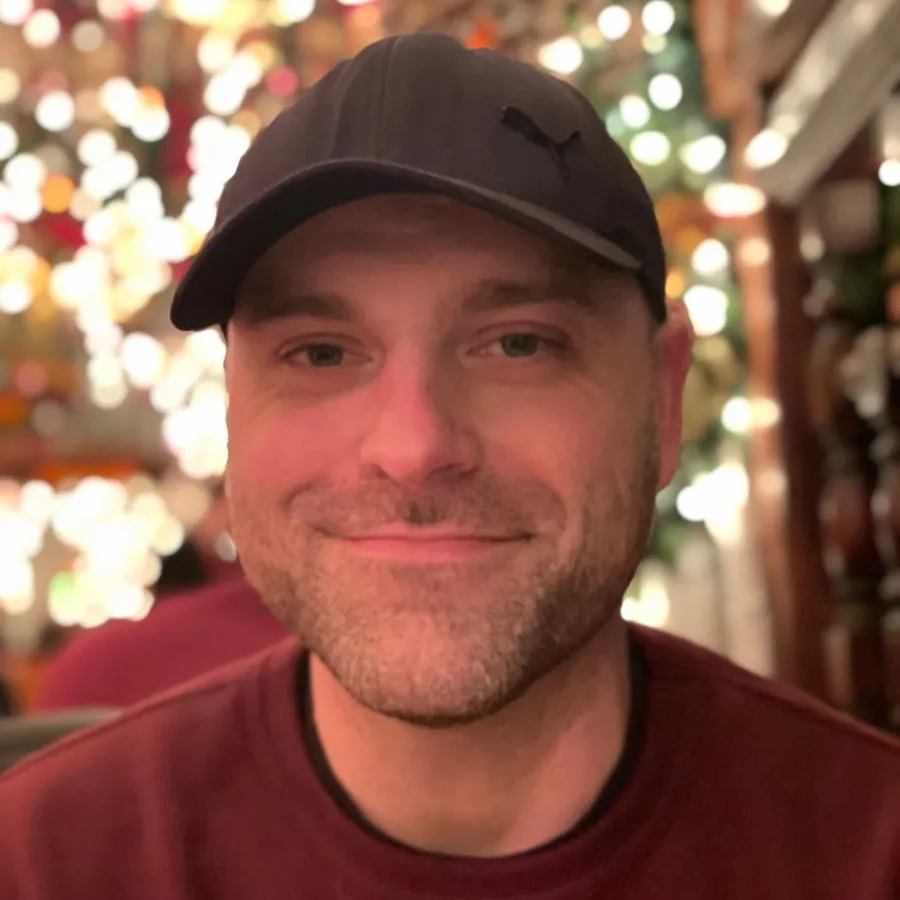“We went back to the castle, went down to the dungeon where we were set up, figured out what key we were gonna play in – and then Blackmore came up with that riff!”: Glenn Hughes recalls his magical time with Deep Purple in the ’70s
“I’m very proud of everything that I did with that band," he says

Want all the hottest music and gear news, reviews, deals, features and more, direct to your inbox? Sign up here.
You are now subscribed
Your newsletter sign-up was successful
In 1973, bassist and lead vocalist Glenn Hughes joined one of the biggest bands in the world – but he never saw it coming.
“I had no idea they were checking me out,” Hughes tells MusicRadar. “They were coming to see me play in my band, Trapeze. They’d seen me play three or four times in Los Angeles, London, and somewhere else. I just thought they were in love with my band!”
Hughes has had a long and varied career in which he has recorded and performed as a solo artist and with a number of major bands including Black Sabbath and, currently, Black Country Communion.
But it was with Deep Purple that he got his first taste of the big time – a period he looks back on with great pride.
He loved his band Trapeze, but as he says now, the offer to join Deep Purple was too big an opportunity to turn down.
“I didn’t know they were actually looking at me to be a member of that band,” he says. “But I was intrigued about that – and no, I didn’t have to audition.”
Hughes joined Purple as the replacement for Roger Glover. “Roger and I were very different players,” Hughes says. “Very different.”
Want all the hottest music and gear news, reviews, deals, features and more, direct to your inbox? Sign up here.
As well as playing bass, Hughes was co-lead vocalist alongside Purple’s other new recruit, David Coverdale, who joined in place of Ian Gillan.
“Oh, man, it was really great with David,” Hughes says. “He really hadn’t done anything in music before then and was like a newcomer.”
Hughes says he didn’t mind sharing the spotlight with Coverdale.
He recalls: “When David came into the band, I befriended him and took him under my wing – because he’d never really written music or sang with anyone before.
“So for me to welcome him into the band was great. I needed another friend to bounce ideas off.”
Hughes and Coverdale completed Purple’s Mark III line-up alongside guitarist Ritchie Blackmore, keyboard player Jon Lord and drummer Ian Paice.
This line-up delivered two great albums in 1974 – Burn and Stormbringer. Burn, in particular, is beloved by Purple fans. And Hughes has fond memories of how the album’s classic title track was written during rehearsals at Clearwell Castle in Gloucestershire.
“We had been down to the pub together,” he says, “and we were one song short of an album. And while sitting there, Ritchie said, ‘I’ve got an idea – what if we write a song called… Burn?’ He paused when he said that, and we were like, ‘Okay!’
“So we went back to the castle and went down to the dungeon where we were set up. We figured out what key we were gonna play in, and then Blackmore came up with that riff, and all of a sudden we were off to the races!
“The song wrote itself. It really did write itself. It was incredible.”
Hughes has his own take on why the Burn album resonated so powerfully with fans.
“Number one,” he says, “we were fresh as friends. We were – and you’d have to imagine this – now 40% of a new band. It was two new guys coming into a five-piece band, and with two new guys coming in we were all fresh and ready to go.”
Ritchie Blackmore has always had a reputation for moodiness and volatility, but as Hughes remembers: “I think Ritchie and Jon [Lord] and Ian [Paice] really embraced the new people coming into the band. There was a lot of love and friendship forming there – even with Ritchie being as difficult as he was.
“And by the way – Ritchie is a musical genius, as we all know. But even he at that time was very funny, respectful, laughing and having fun.”
By 1976, however, Blackmore had tired of Deep Purple. He left the band to form a new outfit, Rainbow. His replacement in Purple was American guitarist Tommy Bolin.
“It was another new guy coming in,” Hughes says, “although he didn’t sound like Blackmore. I think it would have been ridiculous to get a Ritchie Blackmore clone to replace him.
“Jon and Ian, I think, wanted something new and different. And we fell in love with what Tommy Bolin was doing.
“It was completely different. And Tommy was very social and sweet. He had no agenda. Tommy had no ego back then.”
With Bolin aboard, Purple dropped 1975’s Come Taste The Band, a funk-influenced album that divides fans to this day.
Sadly, Bolin was also using heroin in this period, which would contribute to his early death in 1976.
Hughes was by 1975 a cocaine addict, but as he recalls now: “I must say that Tommy lived with me for some time, and I didn’t know what he was doing behind the scenes. When those kinds of drugs are involved, like heroin, I don’t think it’s a social thing.
“I don’t think people talked about it. I think it’s a private thing to do. Did we know that he was involved with that behaviour? Absolutely not. But I may have seen on occasion where he was a little bit off, you know?”
Infamously, Bolin was unable to play guitar properly during Purple’s concert at the Budokan arena in Tokyo on December 15, 1975, after he had passed out and slept on his left arm for eight hours the previous night.
Hughes says now: “Of course, when he fell asleep on his arm, somebody had given him morphine or something like that.
“That’s when we should have known. And that was the signal at the very end – the signal that all bets were off.”
Deep Purple broke up in the summer of 1976.
Tommy Bolin died of a drug overdose on December 4, 1976, aged just 25.
Glenn Hughes has always spoken of Bolin as a good friend and a brilliant musician.
When Hughes names his favourite songs from his time with Deep Purple, he mentions a couple that he and Bolin recorded together for Come Taste The Band.
“I wrote a great song with David called You Keep on Moving, and This Time Around/Owed To ‘G’ with Jon Lord, and also Gettin’ Tighter with Tommy. All of those were from Come Taste The Band.
He adds: “I love Holy Man from Stormbringer. And, of course, Hold On from Stormbringer, too.
“I also really like You Can’t Do It Right from Stormbringer, and I love Sail Away from Burn.
“I’m very proud of everything that I did with that band.”
Andrew Daly is an iced-coffee-addicted, oddball Telecaster-playing, alfredo pasta-loving journalist from Long Island, NY, who, in addition to being a contributing writer for Guitar World, scribes for Rock Candy, Bass Player, Total Guitar, and Classic Rock History. Andrew has interviewed favorites like Ace Frehley, Johnny Marr, Vito Bratta, Bruce Kulick, Joe Perry, Brad Whitford, Rich Robinson, and Paul Stanley, while his all-time favorite (rhythm player), Keith Richards, continues to elude him.
You must confirm your public display name before commenting
Please logout and then login again, you will then be prompted to enter your display name.

